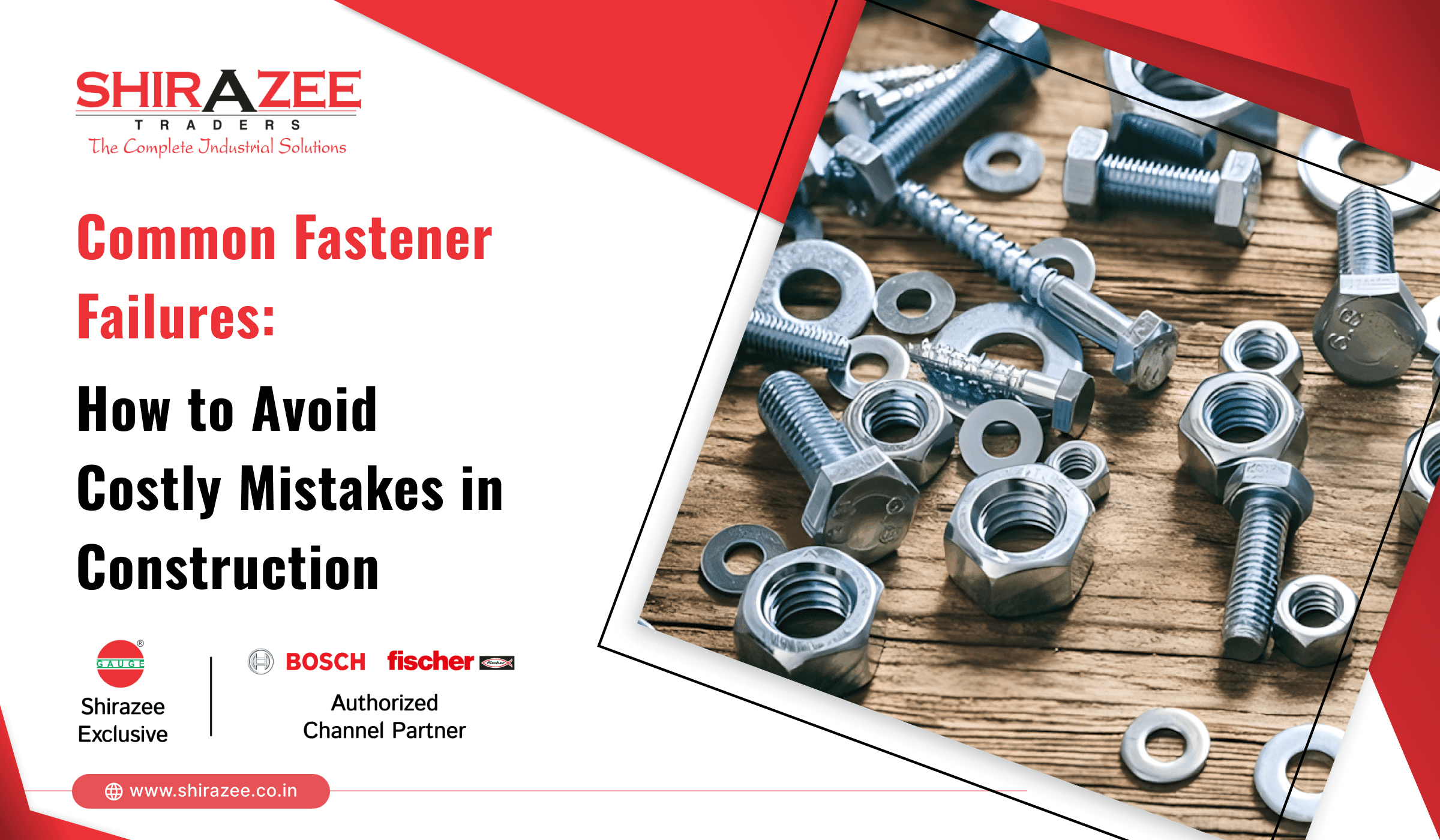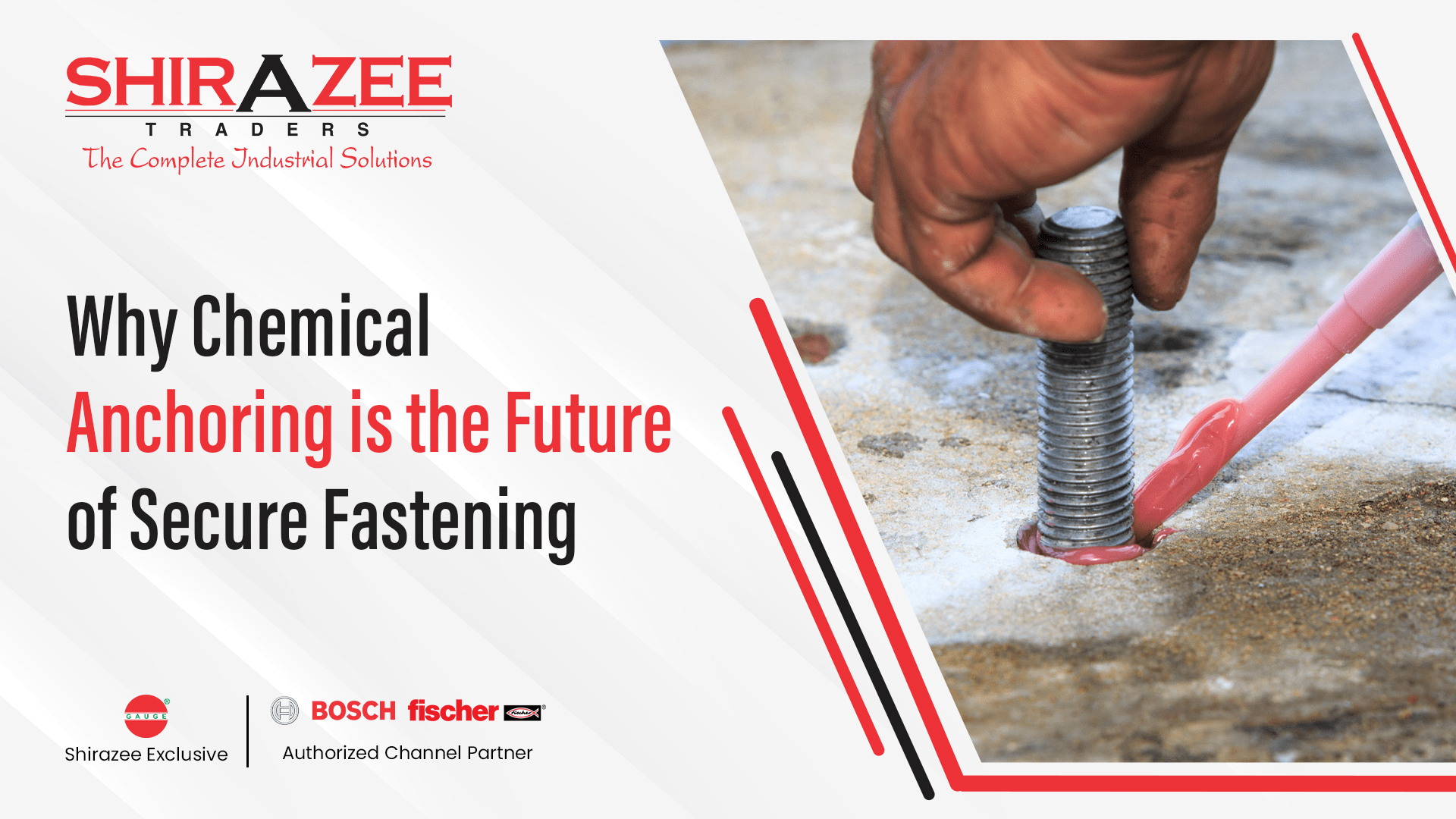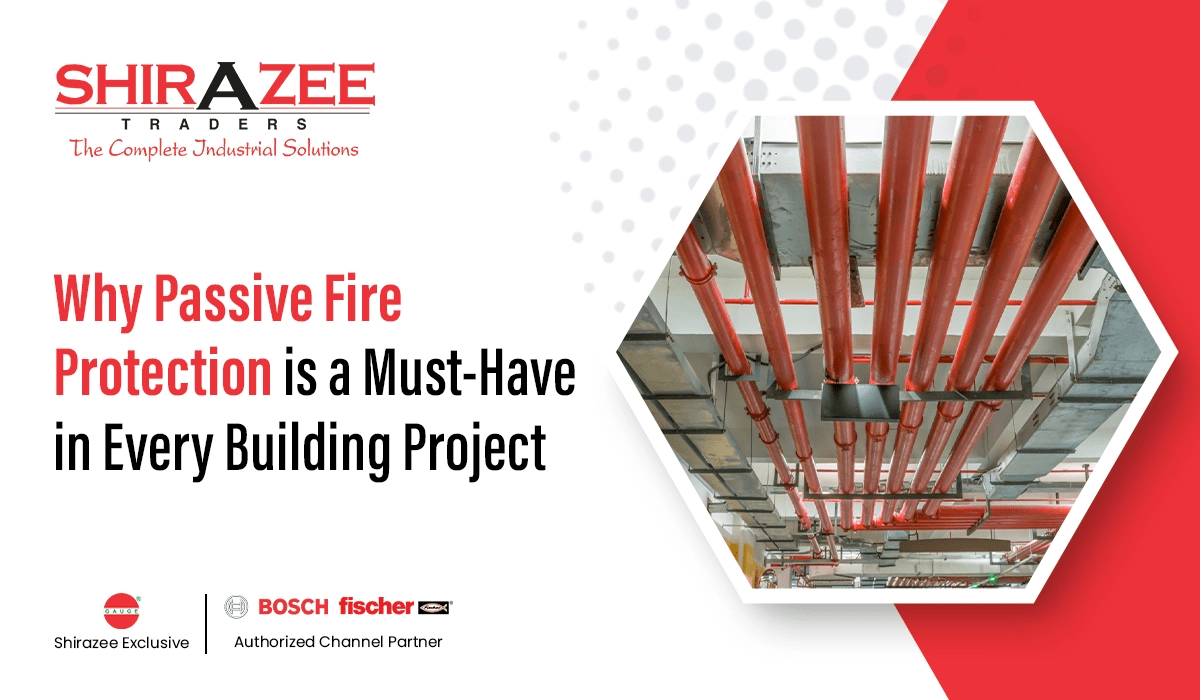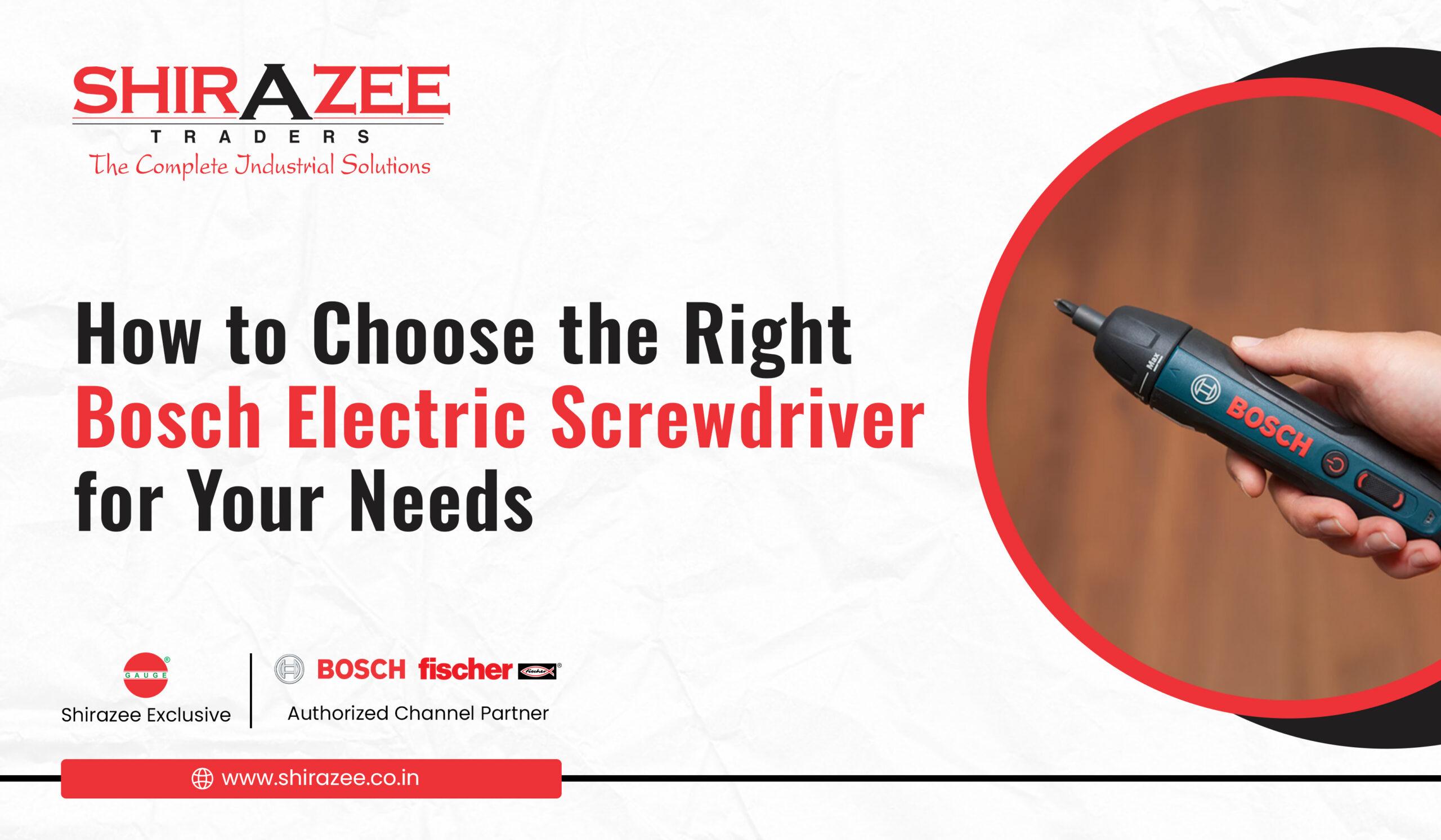
Even the simplest details have a significant impact on building. Allow me to give you an example. A building remains sturdy and secure when the proper fasteners are chosen and installed. However, making mistakes during installation or using the incorrect fastener can result in serious issues. You can now understand how all of these minor errors can have unintended consequences. These mistakes may result in costly repairs, hold-ups, or even more dangerous structures. For this reason, knowing how to prevent fastener failures is crucial.
We are aware that a durable building project depends on the use of the proper fasteners. Let’s examine the typical fastener failure kinds and preventative measures.
What Causes Fastener Failures?
Let’s take a look at the most common fastener failures and what causes them:
1. Corrosion
When fasteners come into contact with air, water, or other hostile environments, corrosion occurs. This leads to corrosion over time. Fasteners get weaker and may even break due to rust. The entire structure may be at danger if a fastener fails. Use corrosion-resistant fasteners, such as those coated in zinc, to avoid this. Shirazee Traders provides a selection of fasteners made to prevent corrosion and maintain the strength of your projects.
2. Overloading
Each fastener has a maximum strength. Overloading is the process of applying too much weight to a fastener, which can cause it to bend or even break. Consider attempting to use a little screw to hang a heavy shelf. It isn’t going to last! For this reason, selecting the appropriate fastener size and strength for every project is crucial. We at Shirazee Traders can assist you in locating the ideal fasteners for your load requirements.
3. Improper Installation
Only when a fastener is put correctly will it function effectively. Fasteners can occasionally be misaligned or tightened excessively or insufficiently. Problems can arise even when the incorrect tool is used. It’s similar to building with Lego bricks in that they will break apart if you don’t snap them together precisely. A straightforward action that has a significant impact is appropriately installing fasteners.
4. Material Fatigue
Over time, fasteners may become worn out. They gradually deteriorate under prolonged pressure, temperature fluctuations, or vibrations. Material fatigue is the term used to describe this wear and tear. These fasteners may eventually fail or shatter. Select strong, long-lasting fasteners that can withstand the demands of your project to avoid this. To lower the chance of material fatigue, Shirazee Traders keeps a large assortment of robust, long-lasting fasteners in store.
5. Incorrect Fastener Selection
Not every fastener is designed for the same purpose. While self-drilling screws may be ideal for metal and wood, they are not suitable for concrete. A poor connection or even a total failure may result from using the incorrect kind of fastener. Always choose the appropriate fastener for the task at hand. The professionals at Shirazee Traders are pleased to help you make the best decision if you’re not sure.
Root Causes of Fastener Failures
Why do these failures happen? Here are some common root causes:
- Material Mismatch: Mixing materials that don’t go well together (like using a steel fastener with aluminum) can cause corrosion and weaken the fastener.
- Environmental Factors: Fasteners exposed to water, salt, or high temperatures are more likely to rust or weaken. Choosing the right fastener for the environment helps prevent this.
- Inadequate Maintenance: Over time, fasteners can wear down. Without regular inspections, these wear-and-tear issues can go unnoticed until it’s too late.
- Inaccurate Load Calculations: If you don’t know how much weight a fastener can hold, you might end up overloading it. Proper calculations help ensure the fastener can handle the load.
Preventive Measures to Avoid Fastener Failures
If you follow the correct procedures, preventing fastener failures is simple. Here are some strategies to avoid these expensive problems:
– Choosing the Right Materials
Always choose fasteners based on the environment and requirements of the project. For instance, use fasteners that won’t corrode if you’re working in a damp environment.
– Proper Installation Techniques
Use the appropriate tools, tighten fasteners in accordance with specifications, and adhere to installation instructions. A fastener that is put correctly holds better and lasts longer.
– Regular Maintenance Checks
Regularly inspecting fasteners enables you to identify any indications of wear or damage. Before they develop problems, replace any fasteners that exhibit rust, cracking, or other problems.
– Load Calculations and Testing
Verify that the fasteners can support the weight of the object they are supporting. You can prevent overloading problems by making accurate estimations.
Innovations in Fastener Technology
New designs and technologies are available today to increase the dependability of fasteners. For instance:
- Corrosion-Resistant Coatings: By preventing rust, zinc flake coatings extend the life of fasteners even under adverse circumstances.
- Advanced Fastener Designs: By preventing rust, zinc flake coatings extend the life of fasteners even under adverse circumstances.
- Fastener Selection Tools: You may save time and ensure accuracy by using software to assist you in selecting the best fastener for your job.
Shirazee Traders provides a selection of industrial fasteners, such as self-drilling screws, that are made to withstand the rigors of your most demanding projects.
Summing Up!
Although fastener failures can cause serious issues, they can be easily prevented with the correct strategy. You can avoid expensive errors by selecting the appropriate fasteners, carrying out the installation instructions correctly, and performing routine inspections. To enable you to construct with confidence, Shirazee Traders is here to assist you in locating the best industrial fasteners for any task. Together, let’s maintain the durability, strength, and safety of your projects!







